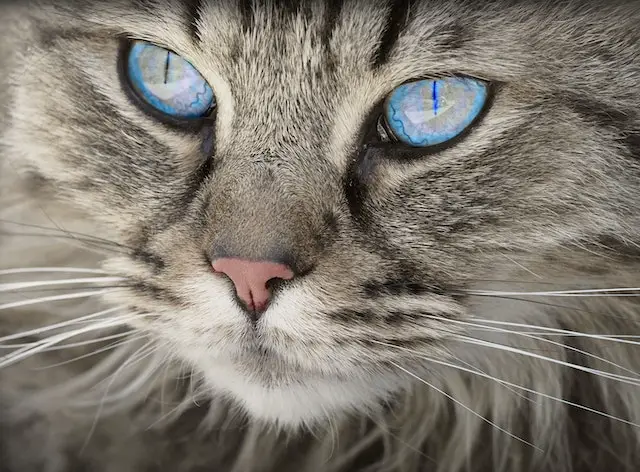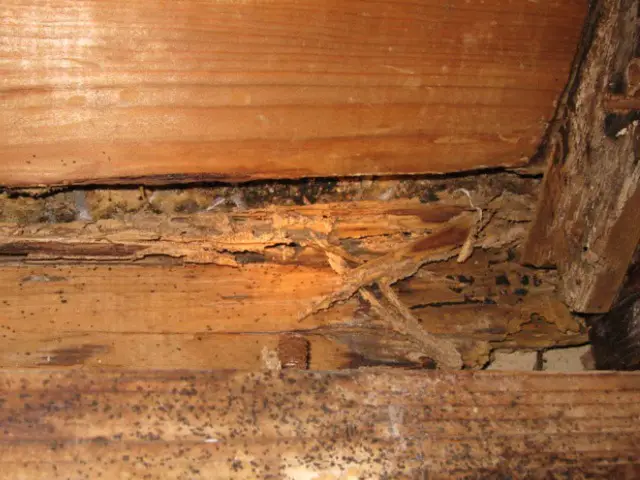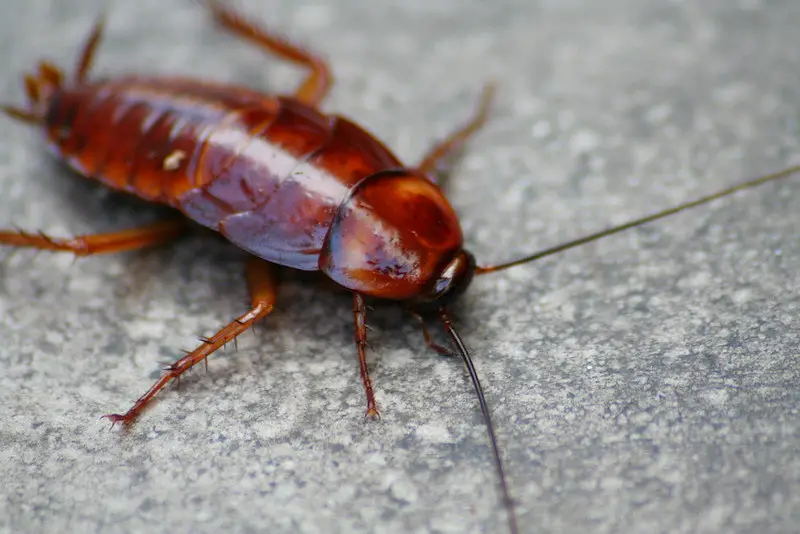Even if a cat no longer lives in your house, fleas can still survive. Any cat can bring fleas into your home. Once in your home fleas can live for weeks without a cat as a host.
Fleas can live in your house without cats. But the question is: “How long can fleas live in a house without a cat?”
How long will fleas live in a house without a cat?
Fleas are tiny but powerful and can survive for a few months, even if they don’t have access to a cat. However, most fleas cannot survive more than 2 months without a cat, so it’s crucial to get rid of fleas within that time frame.
If you have not noticed any new bites after 3 weeks, then you can assume that no new eggs were laid during that period and your home is safe from further infestation. To ensure the complete eradication of these unwanted bugs, make sure to follow up with professional extermination as soon as possible.
This will ensure that any adult or egg-laying females won’t be able to cause additional damage once they return from winter hibernation or travel inside from another location around your neighborhood.
Related posts:
- Are Slugs Dangerous To Cats?
- How Long Can Fleas Live On Humans?
- How Long Can Fleas Live Without A Food Source?
- How Long Fleas Live Without A Host?
- Can Fleas Live on Humans?
Can fleas live in a house without cats?
Fleas can live in a house without cats. As anyone who has ever dealt with fleas knows, it can be hard to eradicate these pests, even after you remove their food source.
Once a flea infestation starts, it can spread from your cat to your home and from your home to other areas—unless you take steps to eradicate them and kill any eggs or larvae they may have left behind.
There are multiple ways to do so; however, eliminating all evidence of fleas may require more than one treatment option. If you want ensure complete removal, read on for more information on how to deal with these little vampires.
Do fleas die without a cat?
Not all fleas die without a cat. Fleas will not die without a cat if they have access to food. If no food is available, they are limited by their life cycle. Normally, only females feed on blood, so in order for her eggs to mature and hatch into new larvae, she needs nutrients. If there are no cats around, she’ll remain dormant until conditions improve and cats return—which could be weeks or months later.
Once there are cats around again, she’ll emerge from her cocoon and reproduce at an alarming rate before dying off again due to lack of nutrition. This cycle continues unless you eliminate all possible sources for your cat: fecal matter, dead insects on carpets or floors, etc.
How long can fleas live in carpet without a cat?
Even if you don’t have cats in your house you could have fleas. While they may not cause physical harm to humans or their cats, they can be very unsightly and dirty. Fleas can develop and survive for months at a time by feeding on dead insect matter found deep within carpets or upholstery.
However, adults are only able to survive from 4 to 6 weeks if there is no food source nearby. When you’re looking for an answer to how long do fleas live when no cat is present, it’s important to consider that adult fleas that are not finding a food source might just die of starvation before reproducing or surviving another year cycle.
Will fleas die in a house without cats?
Unless the fleas find a new cat or another small warm-blooded animal, they will die in a house without cats. Fleas are surprisingly resilient. Fleas can live up to 12 months without feeding on a cat and can survive cold temperatures, dry environments, and even carpet cleaning!
There is no magic bullet for killing fleas in your home, but there are steps you can take to eliminate them over time. Follow these simple guidelines to get rid of pests for good
Can fleas survive in a house with only humans?
Fleas are highly adaptable pests that can survive for many months or even years, depending on how well they are able to find human and cat blood meals. You might be surprised to learn that fleas can survive in your carpeting, furniture, and any other material where they could lay eggs.
However, as an owner of a home infested with fleas, you should be aware that these wingless insects cannot develop into adults unless they find at least one cat or another warm-blooded animal to feed on regularly. Also, note that most adult fleas die within 12-24 hours of taking their first blood meal from a cat; therefore, there is no need to be overly concerned about surviving adult fleas left behind after treating your home’s infestation.
How long can flea larvae survive without a cat?
Fleas can live for as much as 2 years without a cat. However, adult fleas’ lifespan depends on how well they manage to find one. If you remove all your cats from your home and use monthly treatments to get rid of any adult or larval fleas that remain, you should be able to prevent infestations from developing over time.
But even if you do not have cats in your home at all times during those first two years, it’s unlikely that anyone would ever discover an active larval population unless they look extremely closely at floorboards and other hard-to-see places.
Will a flea die without a cat?
If you have one flea, chances are you have more. If you’re plagued by an infestation, it can seem impossible to get rid of them. But it isn’t. It’s just really hard and requires diligence and patience on your part.
To prevent re-infestation, keep your home as clean as possible while using methods like vacuuming or steaming to treat your carpets and upholstery with professional-grade products that kill both adults and eggs (many fleas hatch every day). Repeat until all signs of activity have stopped for about a month before calling off treatment for good.
Can fleas survive without cats?
Many people think they won’t get fleas if they don’t have cats. However, it is possible for your home to become infested with fleas if you aren’t careful. If you notice bites on your skin but no cats are living with you, it may be time to take preventative measures against an infestation.
One sign of an active infestation is little black specks on hard surfaces such as wood floors or walls; these can be tiny droppings from adult fleas hatched inside your home.
Most Fleas in Your House Survive Without Your Cat
Cats bring great happiness to our daily lives. Unfortunately, cats and their owners suffer great discomfort when fleas enter their homes.
Fleas can be a problem in your house even if the cats have been removed. Fleas persist due to a cat or cats living indoors.
Cats can lead happy flea-free lives with recent breakthroughs in flea control products.
The worst flea pest is the cat flea, also called Ctenocephalides felis. Cat fleas need the cat’s blood to survive. Fleas’ favorite hosts around the house are cats. A high population of fleas can live in a house where cats are present.
But even if there are no fleas on your cat at the moment, hundreds of them may be on your carpet and other areas of your home. If cats aren’t available, fleas will hop onto humans. Fleas thrive in indoor environments.
The fleas you may find on or off your cat is just the tip of the iceberg. Removing the cat from your house after you have a flea problem isn’t enough. The cat didn’t take all of the fleas with her. Many more flea eggs, larvae and pupas are just waiting to become adults. Targeting only adult forms of fleas is not at all effective. Long-term, effective flea control is best achieved using products targeting flea adults and their young.
What are the most effective ways to get rid of fleas?
You may have heard that getting rid of fleas involves vacuuming. But, while your vacuum cleaner can help alleviate some of your problems, it will not solve them completely.
Sometimes vacuuming can make things worse by spreading fleas throughout your home. Here are some tips for how to get rid of fleas effectively and safely.
Flea Life Cycle Without a Cat for Host
The flea life cycle is greatly impacted without a cat. Fleas are parasites, and they need a host to survive. And if fleas cannot attach themselves to a cat, they won’t be able to reproduce.
So, if you remove the cat, it will slow down or completely prevent fleas from reproducing. When you remove the host, fleas can no longer rapidly reproduce, protecting you and your cat from a flea infestation.
Therefore, without a cat, fewer flea eggs can hatch. But the mature fleas can continue to suck the blood of any host it can find.
Fleas in Litter Box
Fleas can survive in a litter box. And if fleas are in the litter box, there are likely many more fleas throughout your home. Even if your cat is no longer in your house, the fleas will remain until you get rid of them.
A litter box is an ideal place for fleas. Fleas prefer a humid environment, making litter boxes the right atmosphere. These parasites can hatch and grow in the litter box and wait for the opportunity to attach to a host.
But, without a cat host, the fleas cannot reproduce.
How does an indoor cat get fleas?
Usually, an indoor gets fleas from another animal. Perhaps a cat or dog with fleas visits your home, and the fleas can jump from one to the other. But your indoor cat could get fleas from a wild animal.
Perhaps a squirrel, skunk, or rat could bring fleas (or eggs) close enough for the fleas to jump on your indoor cat.
Your indoor cat might get fleas if infested pets are in the same area, even for a few moments.
If you bring home a rug or furniture, you might introduce fleas to your home. Once the infested furniture is in your house, it’s only a matter of time before your indoor cat gets fleas.




